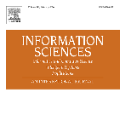Resource theories in quantum information science are helpful for the study and quantification of the performance of information-processing tasks that involve quantum systems. These resource theories also find applications in other areas of study; e.g., the resource theories of entanglement and coherence have found use and implications in the study of quantum thermodynamics and memory effects in quantum dynamics. In this paper, we introduce the resource theory of unextendibility, which is associated to the inability of extending quantum entanglement in a given quantum state to multiple parties. The free states in this resource theory are the k-extendible states, and the free channels are k-extendible channels, which preserve the class of k-extendible states. We make use of this resource theory to derive non-asymptotic, upper bounds on the rate at which quantum communication or entanglement preservation is possible by utilizing an arbitrary quantum channel a finite number of times, along with the assistance of k-extendible channels at no cost. We then show that the bounds obtained are significantly tighter than previously known bounds for quantum communication over both the depolarizing and erasure channels.
翻译:量子信息科学的资源理论有助于研究和量化涉及量子系统的信息处理任务的业绩。 这些资源理论还发现其他研究领域的应用;例如,关于缠绕和一致性的资源理论在量子热力学和量子动态记忆效应的研究中发现使用及影响。 在本文件中,我们引入了不可扩展的资源理论,这与无法将量子缠绕扩展到一个特定量子状态中的多个缔约方有关。 资源理论中的自由国家是 k 延伸状态,而自由渠道是 k 延伸通道,它保存着 k 延伸状态的类别。 我们利用这一资源理论,通过使用任意量子通信或缠绕保护速度的有限次数,以及无成本的 k 扩展渠道的帮助,得出量子通信或缠绕线的高度界限。 我们然后表明,获得的界限比先前已知的关于分解和消化渠道的量子通信界限要紧得多。



